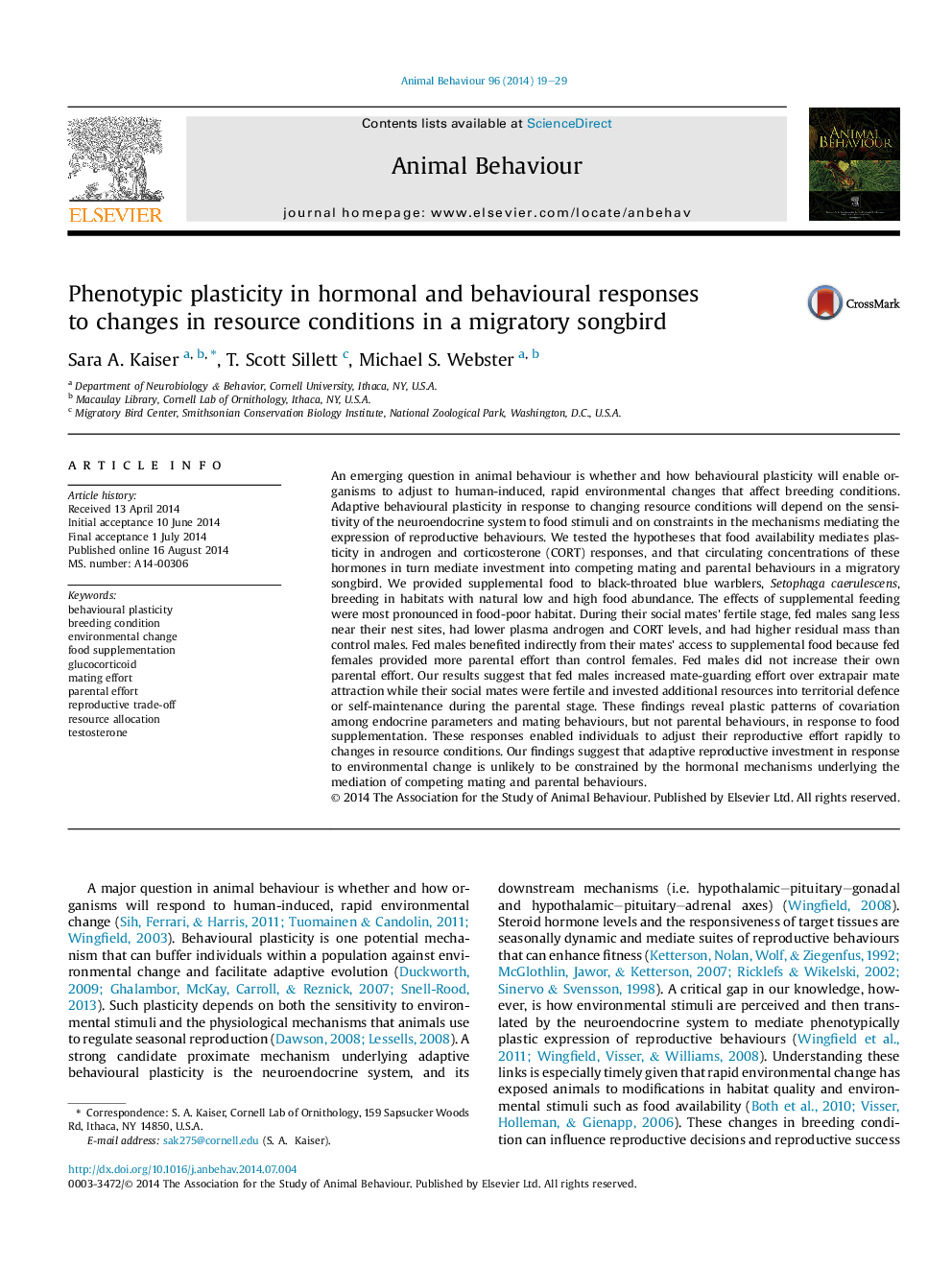| کد مقاله | کد نشریه | سال انتشار | مقاله انگلیسی | نسخه تمام متن |
|---|---|---|---|---|
| 2416350 | 1552232 | 2014 | 11 صفحه PDF | دانلود رایگان |
• Behavioural plasticity can buffer breeding individuals from changes in food resources.
• Behavioural plasticity may be constrained by underlying neuroendocrine mechanisms.
• Food supplementation increased male mating effort and female parental effort in black-throated blue warblers.
• Male behavioural responses to food supplementation covaried with endocrine responses.
• Hormone mediation of reproductive investment did not constrain behavioural plasticity.
An emerging question in animal behaviour is whether and how behavioural plasticity will enable organisms to adjust to human-induced, rapid environmental changes that affect breeding conditions. Adaptive behavioural plasticity in response to changing resource conditions will depend on the sensitivity of the neuroendocrine system to food stimuli and on constraints in the mechanisms mediating the expression of reproductive behaviours. We tested the hypotheses that food availability mediates plasticity in androgen and corticosterone (CORT) responses, and that circulating concentrations of these hormones in turn mediate investment into competing mating and parental behaviours in a migratory songbird. We provided supplemental food to black-throated blue warblers, Setophaga caerulescens, breeding in habitats with natural low and high food abundance. The effects of supplemental feeding were most pronounced in food-poor habitat. During their social mates' fertile stage, fed males sang less near their nest sites, had lower plasma androgen and CORT levels, and had higher residual mass than control males. Fed males benefited indirectly from their mates' access to supplemental food because fed females provided more parental effort than control females. Fed males did not increase their own parental effort. Our results suggest that fed males increased mate-guarding effort over extrapair mate attraction while their social mates were fertile and invested additional resources into territorial defence or self-maintenance during the parental stage. These findings reveal plastic patterns of covariation among endocrine parameters and mating behaviours, but not parental behaviours, in response to food supplementation. These responses enabled individuals to adjust their reproductive effort rapidly to changes in resource conditions. Our findings suggest that adaptive reproductive investment in response to environmental change is unlikely to be constrained by the hormonal mechanisms underlying the mediation of competing mating and parental behaviours.
Journal: Animal Behaviour - Volume 96, October 2014, Pages 19–29
